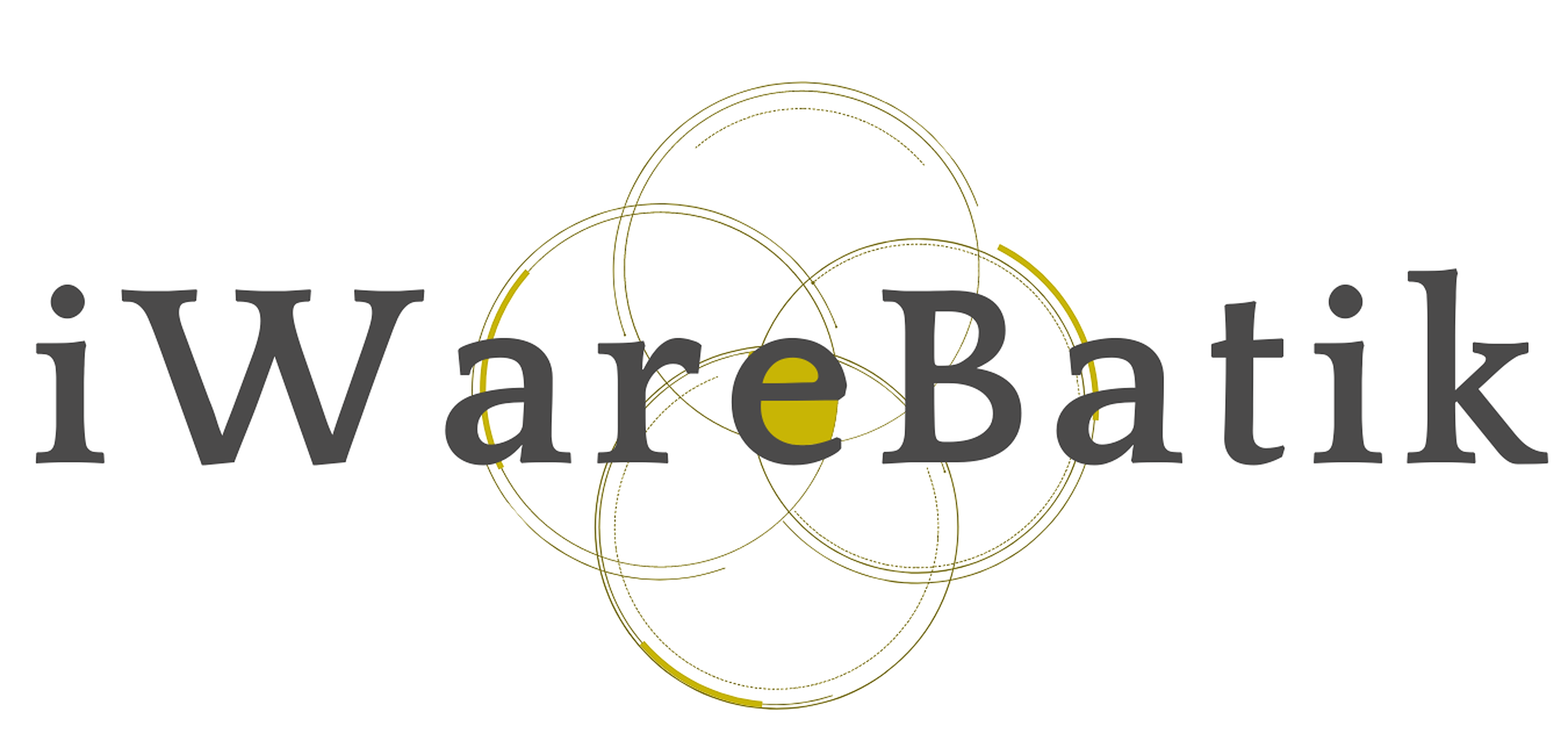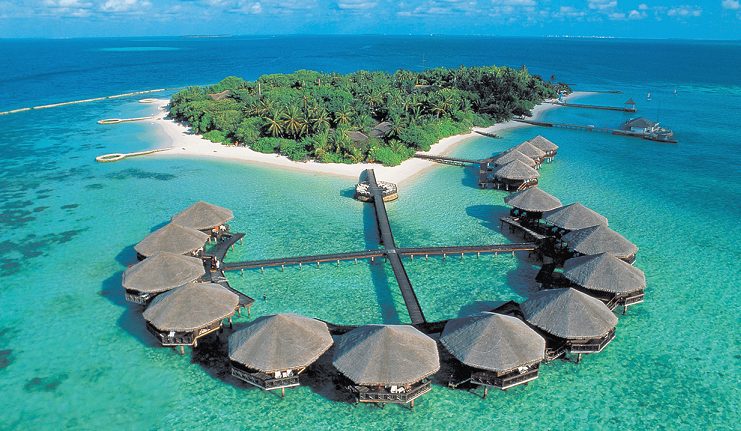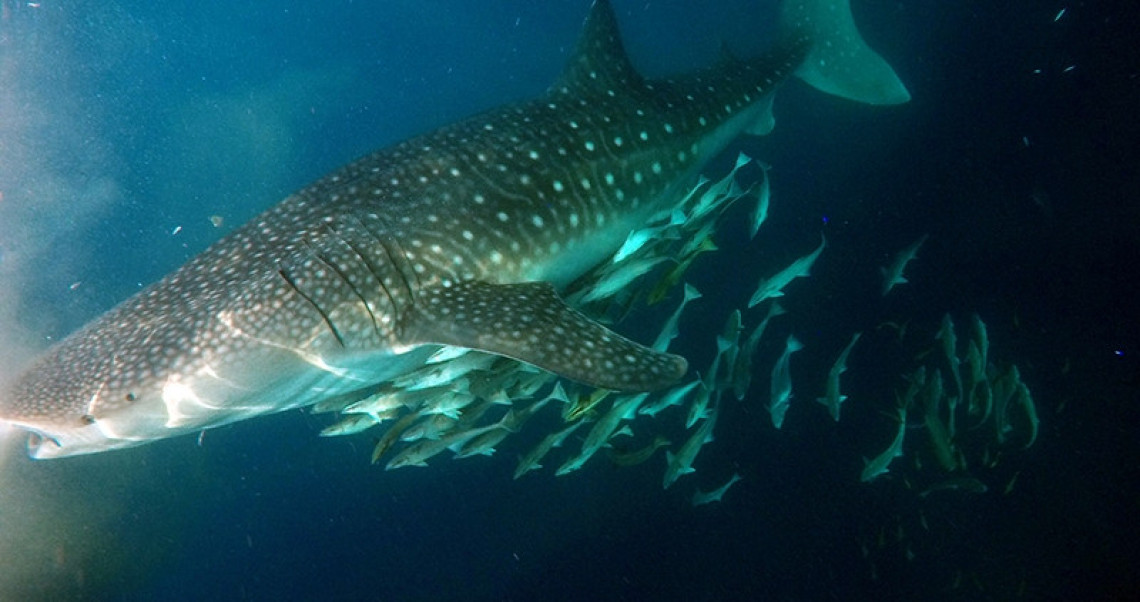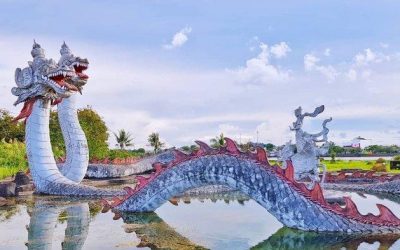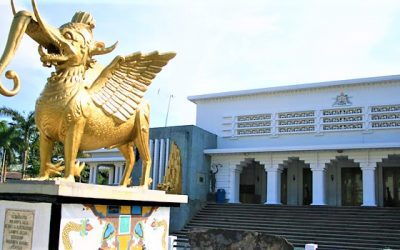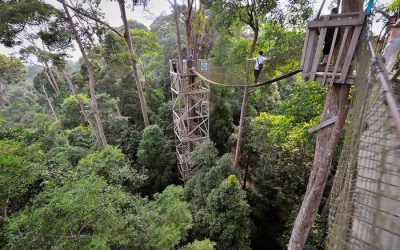Home / Batik Regions – Central Indonesia – Kalimantan Island – East Kalimantan / Derawan Island – Marine Conservation Site
Natural Destination
Experience the tropical nature!
Derawan Island – Marine Conservation Site
The Derawan Island in East Kalimantan (photo: @Kulibur)
Derawan Island
If you want to vacation in a tropical aquatic paradise and enjoy underwater biodiversity, visit Derawan Island, Berau Regency, East Kalimantan. It is a national marine conservation site where divers could see a number of wonderful marine animals such as whale sharks, dolphins, green turtles, yellow jellyfish, etc. The whale sharks are very close to the local fishermen. However, divers are suggested not to touch the protected whale sharks to respect its conservation. Visitors can enjoy the exotic white sand beaches here as well. In addition, Derawan Island also has beautiful resorts on the beach with typical Dayak architectural accents.
Natural Tourism Destination
Derawan Island – Marine Conservation Site
Tourist Attractions in East Kalimantan
Kumala Island of Mahakam River
Do you want to fully experience the Lembuswana mythology in Kutai?
Museum of Mulawarman
Do you want to explore Dayak culture across centuries? This museum offers
Bangkirai Hill Natural Conservation Site
If you have always dreamt to do a little adrenaline outdoor activities,
East Kalimantan
Batik Motifs
Kuntul Perak
Kuntul Perak refers to Egret Silver Bird. This bird is a Kalimantan endemic animal that becomes the
Hiu Taliyasan
Indonesia is also home to the world’s largest fish, the whale shark (Rhincodon typus). Hiu Taliyasan refers to
Tengkawang Ampiek
With its many advantages, the Dayaks use this leaf in ritual ceremonies. This plant is a symbol of
Discover
Indonesian
Batik
Motifs
Malinau Cultural Festival
You will witness a unique competition that might not be found other than in
Sekomandi
Its philosophical meaning is the eternal union which refers to a saying “until death do us part”
Kain Cual
Cual textile tradition has existed since the 17th century. The word “Cual” refers to
Karawo Mahkuta
Mahkuta refers to Gorontalo’s traditional crown. It represents noble characters of
Bomba Mawar
This motif means sacred love for family, kingdom, and God; It also illustrates
Pattimura
Pattimura is the name of an Indonesian hero who fought against colonialism in
Durian Pecah
Broken Durian motifs depict the foundation of faith. The second half signifies the mastery of
Gamolan
This motif illustrates Gamolan, a bamboo musical instrument of Lampung that is
Kaharingan
The Kaharingan or ‘tree of life’ based on the Dayak tribes’ belief system. This tree symbolizes
Sekar Jati
Sekar means flower and Jati refers to teak trees that symbolizes a strong mental character that
Pinawetengan
The Pinawetengan Batik pattern was taken from a prehistoric inscription in
Karawo Pinang
Pinang refers to the Palm areca tree. This motif is considered as the original
Lipaq Sabe
Lipaq Saqbe contains a simple geometric classical motif with various flower decorations. This textile is
Insang Ikan
Insang refers to the gills of the fish. This is a typical pattern of Malay ethnic who inhabits
Leuit Sijimat
This motif reflects the daily activities of the Baduy tribe in Banten. The main ornaments of batik motif consist of:
Burung Bidadari
Bidadari birds are endemic birds in Halmahera. This motif represents an
Desa Na Tolu
The Desa Na Tolu characteristic pattern symbolizes the Batak philosophy of existence and
Parang Seling
Parang Seling or “alternating daggers” is a royal batik motif. It is a feminine variant of
Merak Ngeram
The hatching peacock motif has a very deep meaning which refers to the sacrifice and
Rumah Mamuju
the Batik motif illustrates the house of Mamuju King with the stairs, located on the left of the wooden stage house
Prada Papua
The word “Prada” in the Javanese-Indonesian dialect means a batik textile that
Rangkiang
The word “Rangkiang” refers to the rice granary in the Minangkabau language. It symbolizes
Pohon Hayat (Tree of Life)
The Batik motifs in Lampung are dominated by the acculturation of Buddhist and
Gedhog Kembang Waluh
a combination of Javanese cultural motif of the Majapahit kingdom (XII-XIV century) with
Lontara
The Lontara script itself is a typical ancient script of Bugis and Makassar communities. History records that
Tongkonan
Toraja’s traditional house is called Tongkonan. Tongkonan is a place for
Pala Salawaku
This motif illustrates the unique weapons of the Maluku region, namely
Kawung
The Kawung motif was created by Sultan Agung Hanyokrokusumo (1593 – 1645) as a symbolic gift for
Bultiya
The word ‘Bultiya’ is an acronym of the three major tribes in North Kalimantan, namely
Pucuk Rebung Riau
Pucuk Rebung symbolizes heart determination in achieving goals, good luck, and
Tabir Tanjung
Tanjung flower is a type of Cherry tree flower, which is commonly found in
Dayak Taghol
Dayak Taghol has a distinctive style of four curved lines and small dots. This motif represents
Keluak Daun Pakis
The word “Keluak” is a Minang language which means twisted or tangled. The Motif of
Ukir Sentani
The Ukir motif is a batik motif that is inspired by various traditional Sentani wood carvings
Raja Ampat
Raja Ampat motif represents the marine life at Raja Ampat archipelago in
Sero Tangga
The Sero Tangga illustrates an endearing feeling and sacrifices of a person to fulfil
Kerawang Tegak Aceh
The Vertical Upright (Kerawang Tegak) Motif symbolizes a person who has a strong
Tengkawang Ampiek
With its many advantages, the Dayaks use this leaf in ritual ceremonies. This plant is a symbol of
Jumputan Bintang
The word Jumputan means the tie-dye technique, while the word “Bintang” refers to
Gigi Haruan Lidi
The Gigi Haruan Lidi motif is taken from the name of the cork fish and is a symbol of
Salakanagara
Salakanagara batik motif illustrates the first kingdom in the Betawi land
Bale Lumbu
This motif signifies the welfare of the ancient Sasak society. Bale also symbolizes the
Bintik Tujuh
The Bintik Tujuh (Seven Dots) motif has 7 white spots and green color gradation as
Gorga Simeol-Meol
The Gorga Simeol-meol is a pattern of plant tendrils. it is regarded as a symbol of longevity and
Tenun Bima
The motifs are adopted from Bima woven textile. This pattern has received a great
Tangerang Herang
Tangerang Herang motif is a symbol of Tangerang city. The Tangerang Herang batik motif consists of
Honai
The Honai is inspired by the traditional house of the Papuan community living in
Teguh Bersatu
This batik motif shows the strength of the people of Kupang. It also represents a sense of
Singayaksa
The Singayaksa motif comes from the name of a place where Sultan Hasanuddin used to
Gonggong Siput
Gonggong (Strombus Turturella) is one type of sea snail found around
Sandeq
Sandeq Boat is a symbol of the maritime importance of the West Sulawesi region. The greatness of
Wirasat
Wirasat or divine inspiration is a gift from God. This inspiration is symbolized by
Ake Patra
Ake is related to the divinity and the composition of the universe. It is a symbol of
Hiu Taliyasan
Indonesia is also home to the world’s largest fish, the whale shark (Rhincodon typus). Hiu Taliyasan refers to
Kuda Kupang
Horses symbolize wealth. It contains noble values of virtuous characters that bring
Biji Kopi
The coffee seeds motif illustrates the pride of local coffee specialities in
La Galigo
La Galigo is a literary work of the Buginese Epic that has 300 thousand epic lines. It is considered even
Awan Berarak
Awan Berarak is a combination of Dayak motifs and Malay patterns. The word ‘Awan Berarak’ means the
Besurek Rafflesia
The term “Basurek” refers to a textile that contains letters or inscriptions
Mahkota Siger
Siger is the crown of a noblewoman in ancient time. It is a symbol of femininity, strength, and
Ikan tambal
The word “Ikan” refers to fish. The philosophical meaning of Ikan Tambal means is
Daun Simpor
This motif is inspired by the Simpor plant (Dillenia Suffruticosa) which is a typical
Dayak Kamang
Kamang motif is generally found in the Dayak tribe shield because it is believed to
Taiganja
Taiganja is a precious gold pendant that shows the social status of the Kaili family. It is
Angsa Duo
According to legend, the Angso duo batik motif is a pair of swans that are believed to have led Princess
Srimanganti
The name of the Srimanganti motif is derived from Palace’s hallway that connects to
Lok Baintan Floating Market
As you can imagine, the most authentic thing is that you can buy things and even
Parang Rusak
Another meaning behind this motif is an unconquerable spirit, symbolized by
Paqbarre Allo
The word “Barre” means round and “Allo” means the sunlight. This motif is interpreted as
Kaganga Tanah Rejang
If Batik Besurek combines Arabic calligraphy motifs, then the Kaganga batik takes
Manguni Minahasa
Manguni is identified as the symbol of the Minahasa people. Manguni is known as a
